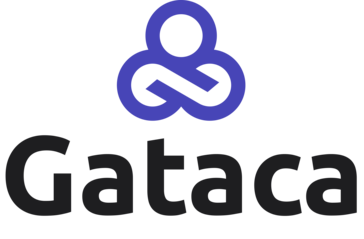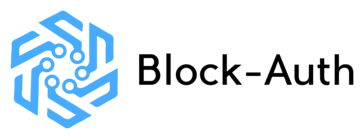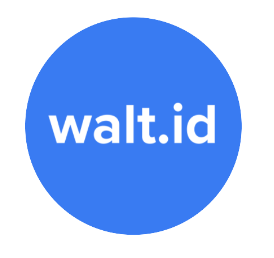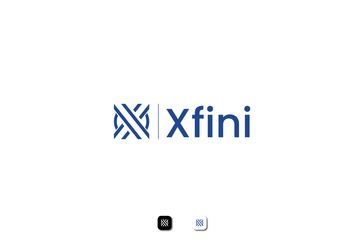Best Decentralized Identity Software
Best Decentralized Identity Solutions At A Glance
G2 takes pride in showing unbiased reviews on user satisfaction in our ratings and reports. We do not allow paid placements in any of our ratings, rankings, or reports. Learn about our scoring methodologies.
- Overview
- Pros and Cons
- User Satisfaction
- Seller Details
What is Microsoft Entra Verified ID? Microsoft Entra Verified ID is a managed verifiable credential service that lets organizations build unique user-owned identity scenarios designed for trustworthy,
- Information Technology and Services
- 40% Mid-Market
- 32% Small-Business
14,002,464 Twitter followers
- Overview
- Pros and Cons
- User Satisfaction
- Seller Details
As a helix id Trusted Partner, you too can become part of the digital future and benefit from revolutionary technology, easy integration & higher visibility of your company.
- Computer Software
- Information Technology and Services
- 56% Small-Business
- 27% Enterprise
1,258 Twitter followers
- Overview
- Pros and Cons
- User Satisfaction
- Seller Details
AU10TIX is a leading global provider of automated identity verification solutions, offering a full-service portfolio with one API endpoint. Originating in airport security and border control, AU10T
- Financial Services
- 47% Mid-Market
- 43% Small-Business
888 Twitter followers
- Overview
- User Satisfaction
- Seller Details
IBM Verify Credentials: transforming digital identity into decentralized identity
- Computer & Network Security
- 47% Mid-Market
- 40% Small-Business
709,764 Twitter followers
- Overview
- User Satisfaction
- Seller Details
Security for you & your customers. GlobaliD's privacy and security solutions help you protect your customers and win their trust--without compromising experience.
- 45% Enterprise
- 27% Mid-Market
15,941 Twitter followers
- Overview
- Pros and Cons
- User Satisfaction
- Seller Details
Keepin App is an all in one identity solution. Verify who you are, provide information about yourself, store and secure your data in one place without losing control of it.
- 50% Small-Business
- 50% Mid-Market
12,312 Twitter followers
- Overview
- Pros and Cons
- User Satisfaction
- Seller Details
At uPort, we build trusted ecosystems that let you, your partners and customers share data in a simple, secure, privacy-preserving* way.
- 50% Mid-Market
- 42% Small-Business
- Overview
- Pros and Cons
- User Satisfaction
- Seller Details
Trinsic is a full-stack self-sovereign identity platform for developers. Access the world's most advanced verifiable credential and digital wallet platform using the simplest APIs and SDKs on the mark
- 45% Mid-Market
- 36% Small-Business
- Overview
- User Satisfaction
- Seller Details
CREDEBL is an open-source Decentralized Identity platform that builds secure & population-scale verifiable digital identity solutions, enhancing digital trust & data privacy. Key Features:
- Information Technology and Services
- 92% Small-Business
- 8% Mid-Market
447 Twitter followers
- Overview
- Pros and Cons
- User Satisfaction
- Seller Details
Nuggets hugely reduces the regulatory and reputation risks of data breaches. It also cuts losses from fraud, false positives and fraudulent chargebacks. And increases revenue. All with the privacy and
- 43% Mid-Market
- 43% Small-Business
5,652 Twitter followers
- Overview
- Pros and Cons
- User Satisfaction
- Seller Details
The SelfKey Identity Wallet allows you to manage all your ERC20 tokens from one convenient location. The light-weight desktop application not only provides an intuitive interface with the Ethereum blo
- 71% Small-Business
- 14% Mid-Market
- Overview
- Pros and Cons
- User Satisfaction
- Seller Details
With VIDchain, we offer a decentralized self-rule identity (SSI) service based on Blockchain to provide people control over their identity and facilitate secure user access to online services.
- 71% Small-Business
- 29% Mid-Market
1,345 Twitter followers
- Overview
- Pros and Cons
- User Satisfaction
- Seller Details
BCdiploma is a blockchain-based digital credentialing solution that enables educational institutions, training organizations, and certification bodies to issue tamper-proof, instantly verifiable, and
- Higher Education
- Education Management
- 55% Mid-Market
- 26% Small-Business
968 Twitter followers
- Overview
- Pros and Cons
- User Satisfaction
- Seller Details
The identity verification ecosystem trades in attestations marked as blockchain transactions to verify credentials. Identity.com does not trade in personal information. This increases security, focuse
- 50% Enterprise
- 33% Small-Business
1,789 Twitter followers
- Overview
- Pros and Cons
- User Satisfaction
- Seller Details
ItsCredible is a well funded blockchain technology company that is bringing the power of smart contracts to the world of documents (credentials, certificates, degrees, badges, offer letters, contracts
- 83% Small-Business
- 17% Enterprise
- Overview
- Pros and Cons
- User Satisfaction
- Seller Details
Sudo Platform is an API-first developer-focused ecosystem that delivers the tools necessary to empower our partners’ users and end consumers with the necessary capabilities to protect and control thei
- Computer Games
- 50% Mid-Market
- 30% Enterprise
3,643 Twitter followers
- Overview
- Pros and Cons
- User Satisfaction
- Seller Details
Everest is a decentralized platform incorporating a massively scalable payment solution, EverChain, with a multi-currency wallet, EverWallet, and a native biometric identity system, EverID. Everest de
- 60% Small-Business
- 20% Enterprise
12,297 Twitter followers
- Overview
- Pros and Cons
- User Satisfaction
- Seller Details
Contact-Free Authentication Powered by Advanced Biometrics and Blockchain 1Kosmos BlockID leverages advanced biometrics authentication and Blockchain technology to verify the identity of anyone who n
- 42% Mid-Market
- 35% Small-Business
4,387 Twitter followers
- Overview
- Pros and Cons
- User Satisfaction
- Seller Details
With Bloom’s Truth Platform, you can leverage Bloom Validator to make the most of what you have, and find out what you need.
- 50% Enterprise
- 50% Mid-Market
890 Twitter followers
- Overview
- User Satisfaction
- Seller Details
Deqode offers a complete portfolio of enterprise blockchain solutions to rapidly integrate the technology with your existing business process and accelerate your digital innovation journey.
- 75% Small-Business
- 25% Mid-Market
3,509 Twitter followers
- Overview
- Pros and Cons
- User Satisfaction
- Seller Details
Meet Gataca Studio, the all-in-one platform streamlining the issuance, verification, and management of identity credentials and facilitating the integration of Self-Sovereign Identity into your websit
- 75% Small-Business
- 25% Mid-Market
- Overview
- User Satisfaction
- Seller Details
Hyperledger is a collaborative effort created to advance blockchain technology by identifying and addressing important features for a cross-industry open standard for distributed ledgers that can tran
- 56% Small-Business
- 25% Enterprise
226 Twitter followers
- Overview
- Pros and Cons
- User Satisfaction
- Seller Details
ShoBadge is a next generation enterprise identity solution. Providing multi-factor authentication in conjunction with the blockchain, users can securely and simply log into work apps and cloud service
- 50% Small-Business
- 25% Enterprise
42,506 Twitter followers
- Overview
- Pros and Cons
- User Satisfaction
- Seller Details
Self-Sovereign Identity: Decentralized, Secure, Convenient, Private.
- 50% Enterprise
- 50% Mid-Market
951 Twitter followers
- Overview
- Pros and Cons
- User Satisfaction
- Seller Details
The world's leader in verifiable credentials and self-sovereign identity, Evernym helps 500+ organizations realize the benefits of more trusted, private, and secure data exchange and verification.
- 33% Enterprise
- 33% Mid-Market
5,179 Twitter followers
- Overview
- User Satisfaction
- Seller Details
Accredify is pioneering the world’s transition to verifiable data. Accredify is Asia Pacific’s award-winning leading verifiable technology solutions provider. By enabling automation and secure informa
- 50% Mid-Market
- 50% Small-Business
- Overview
- User Satisfaction
- Seller Details
Dock’s platform makes any data fraud-proof and instantly verifiable. Organizations in diverse industries can use Dock’s solutions to increase operational efficiency while reducing the costs of verifyi
- 50% Mid-Market
- 50% Small-Business
- Overview
- Pros and Cons
- User Satisfaction
- Seller Details
Ultimately, blockchains are just tools used to solve customer problems. Guardtime’s mission in life is to leverage the tools we have built, work with partners and build the highest quality enterprise
- 63% Mid-Market
- 25% Small-Business
2,043 Twitter followers
- Overview
- Pros and Cons
- User Satisfaction
- Seller Details
Forward-thinking organizations across every industry are looking to blockchain technology to combat fraud, mitigate risk and relieve administrative burdens associated with exchanging information and c
- 50% Mid-Market
- 50% Small-Business
13,333 Twitter followers
- Overview
- Pros and Cons
- User Satisfaction
- Seller Details
Kaleido is the award-winning, enterprise-grade platform making blockchain and digital assets radically simple for organizations to adopt. Kaleido provides a complete stack for building blockchain-ba
- 58% Small-Business
- 33% Enterprise
4,609 Twitter followers
- Overview
- Pros and Cons
- User Satisfaction
- Seller Details
Connect your data from web2 platforms and connect it to private AI and other web3 applications.
- 50% Enterprise
- 50% Small-Business
84,055 Twitter followers
- Overview
- Pros and Cons
- User Satisfaction
- Seller Details
Welcome to Affinidi, where we revolutionise data ownership for good. Our vision is crystal-clear: crafting a world where everyone can securely and seamlessly control, manage, and derive value from th
- 100% Mid-Market
- Overview
- User Satisfaction
- Seller Details
Block Armour is a Singapore, India, USA, and UK-based award-winning Cybersecurity venture focused on harnessing modern approaches and emerging technologies such as Blockchain to counter growing cybers
- 100% Mid-Market
- Overview
- Pros and Cons
- User Satisfaction
- Seller Details
Block-Auth is a SaaS platform that offers blockchain-based authentication and identity management, allowing absolute control of digital identity through a *passwordless* approach.
- 100% Small-Business
- Overview
- User Satisfaction
- Seller Details
Civic is a leading provider of identity management tools for blockchain, empowering people to easily and privately manage their identities across chains with an on-chain representation of their reusab
- 50% Mid-Market
- 50% Small-Business
121,756 Twitter followers
- Overview
- Pros and Cons
- User Satisfaction
- Seller Details
Providing a secured and decentralized system for Certificate Issuers, Individuals and Employers to store & verify certifications and credentials using Blockchain Technology.
- 100% Small-Business
- Overview
- User Satisfaction
- Seller Details
- 100% Small-Business
- Overview
- Pros and Cons
- User Satisfaction
- Seller Details
Meeco is building a personal data marketplace of equals. We give people and organisations the tools to control, access and gain value from data.
- 100% Small-Business
- Overview
- User Satisfaction
- Seller Details
Spherity’s decentralized Digital Twins enable innovative customer journeys across mobility, supply chain transparency, risk assessment, audit trails for data analytics, and many more use cases.
- 100% Small-Business
- Overview
- User Satisfaction
- Seller Details
Terradoxa Intelligent Horizontal Platform: - creates the digital identity of individuals and businesses (end of identifiers, end of passwords) - simplifies and secures the uses of the digital world (s
- 100% Mid-Market
- Overview
- User Satisfaction
- Seller Details
TruAnon lets community members Build Trust making your social or consumer marketplace more safe and authentic. Put an end to Fraudsters immediately and permanently ban bad actors forever. Like SSO for
- 100% Small-Business
- Overview
- User Satisfaction
- Seller Details
SDKR is our Smart Decentralized Key Recovery solution for wallets and other products that require highly secure key management.
- Overview
- User Satisfaction
- Seller Details
Bedrock is an application platform that helps you get your ideas to market quickly by reducing the engineering effort of launching a new product. Finding, vetting, testing, and combining disparate tec
- Overview
- User Satisfaction
- Seller Details
Dragonchain is a technology leader in the blockchain space, with security and scalability at the forefront of its operations. We are proudly U.S.-based and part of one of the most technologically rich
- Overview
- User Satisfaction
- Seller Details
Our platform makes it seamless for enterprises to manage and create identities. We use Decentralized Identifiers (DIDs) that are unique and verifiable. We link DIDs with Verifiable Credentials (VCs)
- Overview
- User Satisfaction
- Seller Details
EveryCRED is a digital credential solution provider that leverages blockchain technology and decentralized identifiers (DIDs) to offer secure, verifiable credentials. It simplifies digital identity ve
- Overview
- User Satisfaction
- Seller Details
HearRo uses the Sovrin public blockchain to add three kinds of "cryptographic" trust that enable a whole new way to communicate.
- Overview
- User Satisfaction
- Seller Details
HyperID is an innovative digital identity and data access management platform designed to help organizations transition their Web 2.0 users to decentralized Web3 accounts. The platform makes it easy f
11,575 Twitter followers
- Overview
- User Satisfaction
- Seller Details
The Indicio TestNet uses the open-source technology of Hyperledger Indy, Aries and Ursa to provide a neutral, independent, and reliable decentralized network for the exchange of verifiable credentials
- Overview
- User Satisfaction
- Seller Details
Engineered for production-grade deployments our Enterprise portfolio is built on the strong foundations of the MATTR OpenSource codebase. Our products range from standalone DID infrastructure building
- Overview
- User Satisfaction
- Seller Details
mintBlue offers an easily implementable solution for immutable storage and identity authentication, ideal for large-scale usage. With mintBlue, organizations can concentrate on their core products or
1,514 Twitter followers
- Overview
- User Satisfaction
- Seller Details
Neo is an open-source, community driven platform that is leveraging the intrinsic advantages of blockchain technology to realize the optimized digital world of the future.
- Overview
- User Satisfaction
- Seller Details
- Overview
- Pros and Cons
- User Satisfaction
- Seller Details
OneID® is a provider of secure, document-free identity verification solutions, accredited by the UK government. Our platform leverages advanced technology to streamline customer onboarding and enhance
- 50% Mid-Market
- 50% Small-Business
- Overview
- User Satisfaction
- Seller Details
Ontology is a blockchain for self-sovereign ID and Data. |ont.io| onto.app/LNKD
- Overview
- User Satisfaction
- Seller Details
The only decentralized identity and compliance ecosystem that puts people in control of their protected personal information and rewards their community for trustworthiness
- Overview
- User Satisfaction
- Seller Details
- Overview
- User Satisfaction
- Seller Details
walt.id offers holistic digital identity and wallet infrastructure used by thousands of developers, governments and businesses across industries. The products are open source, based on open standards,
- Overview
- User Satisfaction
- Seller Details
By dismantling intermediaries and creating a decentralized ecosystem, XCEL aims to ensure that individuals facing poverty receive direct and consistent benefits. This revolutionary model empowers the
- Overview
- User Satisfaction
- Seller Details
Youverse was born from a dream. A dream about managing our accounts without hassle; and never having to remember one single password or carry any cards. But we wanted something special, we wanted user
Learn More About Decentralized Identity Solutions
What are Decentralized Identity Solutions?
Decentralized identity solutions are products companies use to manage and verify end-user identities, including employees and customers. Decentralized identity solutions let end-users retain control over their data. This is unlike centralized identity products that house personally identifiable information (PII) and other sensitive information in one location which a company has access to. With decentralized identity solutions, individuals can retain control over data without using a centralized registry, certificate authority, identity provider, or other centralized identity authority.
This end-user control of sharing and revoking access to one’s sensitive data is known as self-sovereign identity (SSI). Decentralized identity solutions often rely on blockchain technology, storing a person’s digital identity and other verifiable credentials in a digital wallet. Implementing blockchain-based technology allows end-users to create, manage, and own their digital identities in ways traditional, centrally-managed identity verification does not. Allowing end-users to have such a degree of control over their data makes it possible for them to retain a higher degree of privacy while also having a more convenient experience sharing and revoking access to their credentials, data, and PII.
Companies may decide to transition to or implement decentralized identity solutions into their operations for several reasons. Reducing user identity fraud, rapidly onboarding new users, and reducing costs associated with provisioning and issuing digital certificates are just a few motivations buyers may choose to decentralize employee identities. Employees also benefit from decentralized identity solutions, as these tools offer a privacy-preserving solution for their identity verifiers and reduce security risks associated with centrally storing identity information, including regulated data such as PII.
What are the Common Features of Decentralized Identity Solutions?
The following are some core features within decentralized identity solutions that can help users:
Credentials: The verifiable credentials stored in end-users' digital wallets validate the wallet owner’s identity for their employers. Identities can be validated using public key infrastructure (PKI) to secure end-to-end PII transmission between employees and their employers. This information can include bank routing information for payroll purposes, mailing address information for communication purposes, vaccination records for on-site work authorization, and more.
Access: A core feature of decentralizing identity management is that it gives individuals more discretion over who can access their PII, when they can access it, for how long they can access it, and whether or not they will be able to continue to access it. Individuals become the arbiters of their most important personal data assets and information by storing digital credentials and sensitive information in an individually-controlled digital wallet.
Distributed ledger technology (DLT) systems storage: DLT is a decentralized record management system that includes static and dynamic data. This form of decentralized identity management allows for improved traceability and increased transparency, as decentralized ledgers and other credentials are visible to multiple users simultaneously instead of being housed in one location. Transactions, modifications, and access logs can be monitored in real time, in several places, and at once.
Blockchain technology is an example of DLT. Decentralized identity solutions utilize DLT and blockchain technology to be just that: decentralized. Forgoing traditional modes of credential storage and identity verification, centralized identity management benefits end-users who prioritize increased transparency and traceability.
What are the Benefits of Decentralized Identity Solutions?
Built on trust: The term “blockchain” refers to the mechanism responsible for how the technology operates. Blocks of information are chained together through a transparent log of transactions, modifications, and other activities. Each block on the blockchain is built upon the block that precedes it until the beginning of the chain is reached—the “genesis block.” Changes to each block, which creates the successor block, are documented through a timestamp and a backlink to the block to which the changes were made.
Blockchain’s designed transparency aids organizational cybersecurity efforts by building digital trust between organizations and the identity data of their employees, customers, students, and more. Since changes in information made on the blockchain are meticulously logged, malicious actors are prevented from falsifying or adulterating credentials. This form of digital identity management makes it easier for end-users to retain confident control over their sensitive data.
Distributing ledger access across multiple entities also helps foster trust. Since the wallet owner has given multiple parties access to view the blockchain, everyone with access can identify when credentials have been altered. Blockchain records themselves can’t be altered, meaning malicious actors can’t falsify or manipulate the owner’s credentials without revealing their activity to anyone who can view the blockchain.
Security: Blockchain technology also relies on cryptography and public keys to reduce the risk of data breaches between the digital wallet’s owner, such as an employee, and the party accessing the information, such as an employer. The principles behind using a decentralized digital identity, which includes its cryptographic nature and the unique chain of blocks that are nearly tamper-proof, make this technology incredibly secure.
Agility: The party who owns the digital wallet containing their credentials can add and revoke access instantly. Additionally, the owner can update, add, and edit information as necessary. Those changes are immediately reflected to all the parties whom the owner has granted access.
Blockchain and DLT’s iteration of self-sovereign identity can allow employees, customers, patients, students, and more to update records without relying on bureaucratic processes present in centralized identity management, instantly improving communication between themselves and enterprises. This can include updating their mailing address, vaccination status, bank account information, and more.
Who Uses Decentralized Identity Solutions?
There are several use cases for implementing decentralized identity systems.
Employers: Decentralized identity solutions can aid employers in new hire digital identity authentication and help them more quickly onboard new employees into existing company infrastructures. Decentralized identifiers stored within an employee’s digital wallet can include phone numbers, mailing addresses, and other contact information. Additionally, employees can share their credentials with their new employers, like vaccination records for on-site work and professional certifications.
Customers: Having autonomy over one’s digital identity can empower customers to have a firmer understanding of which businesses can access their personal data. For example, patients can offboard from and integrate into healthcare systems with decentralized identity solutions while revoking and granting access to their healthcare records from one provider to the next. Leveraging a decentralized identity solution can help customers secure their digital identities and the parties accessing their sensitive data.
IoT devices: The Internet of Things (IoT) refers to devices embedded with sensors, scanners, actuators, and the like, which are connected to computing systems. These connected devices allow the internet to observe and influence the real world, such as vehicles that can alert friends, family, and emergency services if they have crashed. Decentralized identity solutions can verify devices’ identities while enabling device owners to create access rules for the data the devices record and the processes they implement. Additionally, decentralizing IoT device identity management can make siloed IoT devices interoperable between manufacturers’ proprietary processes. In this way, decentralized identity solutions can prevent malicious actors from accessing IoT devices, stealing their data, and influencing the world around them. This can include digital personal assistants, offices, and labs with locks controlled by smartphones.
Challenges with Decentralized Identity Solutions
There are several decentralized identity platforms to choose from, but there is a lack of standardization across them, which causes several of the following challenges:
Interoperability: Key differences between blockchains create interoperability challenges between decentralized identity systems. This can limit organizations to using a single blockchain for decentralized identity management. New employees with pre-existing digital wallets on other blockchains must adopt the blockchain of choice for their new employer. Additionally, this may cause customers to choose to work with enterprises that accept ledgers from the blockchain their credentials are already stored on.
Security and privacy concerns: Lack of standardization also poses potential security and privacy concerns with blockchain technology. There is no standard protocol for public and private key management related to DLT. Just like conventional PKI, if a malicious actor steals a digital wallet’s private key, they can decrypt and access its contents. Other credentials used for wallet access and asset disbursement, including biometric factors, have no standard method of storage, which concerns privacy watchdogs intent on keeping blockchain user PII private.
User adoption: Scalability can be an issue for users accustomed to centralized identity management. Decentralized identity management systems are more challenging to operate than traditional centralized management systems. Lacking features like usernames and passwords creates complex user experiences for would-be adopters. This has prevented user adoption and affected the concept’s scalability. Decentralized identity management systems also tend to have slower processing speeds than established centralized identity management systems, which also deters enterprises and customers from embracing the concept.
How to Buy Decentralized Identity Solutions
Requirements Gathering (RFI/RFP) for Decentralized Identity Solutions
When selecting a decentralized identity solution, buyers should consider the following factors to best meet their needs:
Scalability: Buyers must prioritize how scalable the decentralized identity solution is. The number of digital identities they want to transfer to the decentralized identity solution from their pre-existing centralized identity management system, in addition to the number of new identities buyers want to create, will ultimately be limited to how easy it is to scale the solution.
Ease for end-users: Many decentralized identity solutions are complex and require end-users to have a savvy understanding of blockchain and distributed ledger technologies to fully grasp how to own their digital identities. Buyers should pay close attention to how easy it will be for end-users to interact with each decentralized identity solution’s interface.
Compare Decentralized Identity Solutions
Create a long list
While some decentralized identity solutions are for general use, some products may be tailored for narrower purposes. Buyers should create a long list tailored to their needs. Does the buyer need to implement a decentralized identity solution for students or employees? Does the buyer need a solution for a variety of use-cases?
Create a short list
To further narrow the pool of potential products, buyers should read product user reviews from g2.com. Reviews speak to the user experience, the complexity of implementation, costs, and overall functionality of the decentralized identity solution. Beyond reading reviews, buyers are also empowered to leverage the G2 Grid® to see how competing decentralized identity solutions compare to each other.
Conduct demos
By selecting the “Get a quote” button, buyers can often directly contact vendors on g2.com to request a product demo. During each demo, buyers should ask the same questions to fairly evaluate each product against the others the buyer is considering. Buyers should ask decentralized identity vendors about the solution’s processing speeds, user interface, ease of user adoption across an enterprise, how keys are managed, and the typical length of time it takes to move from a centralized identity management system to their specific decentralized identity solution. Buyers should also ask vendors about end-user training, as many are still unfamiliar with blockchain and distributed ledger technology.
Selection of Decentralized Identity Solutions
Choose a selection team
When buyers consider different products, several key stakeholders should be included in the decision-making process. It is important to include the day-to-day administrator of the organization’s current, centralized identity management system so they can ask vendors about phasing out the old system and phasing in the vendor’s product. Software engineers and at least one IT department representative should also be included to learn how to successfully integrate blockchain technology into their enterprise’s pre-existing infrastructure.
Negotiation
It may be possible for buyers to secure a deal with decentralized identity solution vendors. Buyers should ask if better rates are possible based on the number of identities the organization plans to decentralize and the types of identities they plan on decentralizing, including students, customers, and employees. The duration of the agreement between the buyer and the vendor may also be a factor to consider, with longer contracts sometimes allowing buyers to secure better rates.
Final decision
The final decision will come down to the decentralized identity solution’s use cases, scalability, ease of adoption, and end-user confidence in interacting with the blockchain. As identity management is a crucial aspect of business operations affecting administrators and end-users, consensus across the organization may be beneficial. Informing end-users of the advantages of having sovereignty over their digital identities and providing training is imperative to ensuring end-user adoption.
Ultimately, the final decision makers will likely be: the enterprise’s arbiter of identity management, the person responsible for the enterprise’s security, a leader within the software engineering team, and the chief executive or operations officer.







































